Soheir Asaad is Director of Advocacy at Rawa, a Palestinian grassroots community fund using community-led participatory grantmaking across Palestine. Since 2018, over 60 grants have been awarded to grassroots community-based initiatives. Alliance digital editor, Charlotte Kilpatrick and executive editor, Charles Keidan talked to Soheir Asaad in July to discuss how Palestinian community philanthropy is navigating a path through the crisis in Gaza.
Charlotte Kilpatrick: What are the chief obstacles that you see with philanthropic aid, or any aid for that matter, getting into Gaza and the West Bank?
Soheir Asaad: The genocide in Gaza and the Israeli blocking of aid has now gone on for over 300 days. I think it’s time for philanthropy to ask more challenging questions, including of itself. Not only about how to get aid in, but about the politics of aid. The “humanitarian crisis/aid” framework continually ignores the history and lived reality for Palestinians that pre-dated October 7, which is a reality of colonialism and a struggle for liberation.
This is the reality for Palestinians not only in Gaza and the West Bank, but also in 48 [internationally known as Israel]. This is why Rawa works with grassroots Palestinian communities across all of historic Palestine, and uses a framework not of aid, but of community-based resilience.
We see that aid frameworks too often further the fragmentation of the Palestinian community and the impunity of Israeli crimes. Aid has for many years resulted in the political subordination of Palestinians, reshaping Palestinian society and its struggle against colonisation. While facing the violence of Israeli crimes, Palestinians are told we cannot talk about the root causes of our oppression, let alone be resourced to address them.
Donor countries are complicit in this. The worst offender is of course the US, which sends billions of dollars of aid to arm Israel with one hand, while with the other hand it sends crumbs of aid to the Palestinians who meanwhile are being killed by American-funded and manufactured bombs falling from the sky– to what, feed them before you bomb them? Can we realistically look at the framework of aid and deem it to have net benefit, rather than net harm?
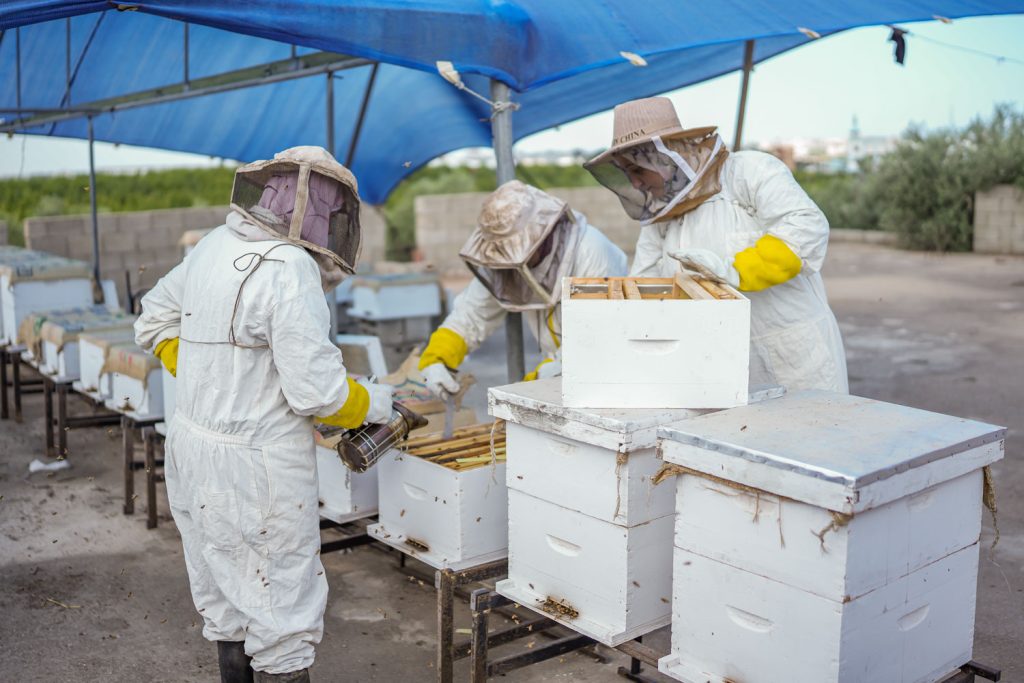
Photos in this piece are of grassroots initiatives in Gaza, courtesy of Ain Media, a production company founded by photographers Yasser Mortaja and Rushdi Sarraj. Yasser was killed by the Israeli army during the March of Return in 2018, and Rushdi was killed by the Israeli army in Gaza in 2023.
Charles Keidan: Do you think that is true of aid from philanthropy as well as government?
Soheir Asaad: How different are philanthropic institutions when they send small, often conditional grants to “aid” Palestinians, while investing their endowments, many more dollars, in the military industrial complex creating the need for that aid? Some philanthropic institutions and donors are an exception, but mainstream philanthropy largely treats Palestinians as passive victims who will receive aid without holding Israel accountable, rather than as a people with agency in a struggle for justice.
This is not new. During the Israeli assault on Gaza in 2014, many donors pledged aid. Yet homes and infrastructure destroyed in 2014 in Gaza were never rebuilt. A decade later, amidst a genocide that is still ongoing, the aid community is talking about rebuilding. Israel continues to raze neighbourhoods and agricultural areas and attack all forms of infrastructure, making most of Gaza uninhabitable.
Yet instead of focusing on holding Israel accountable for its crimes and achieving justice for Palestinians, the philanthropy sector is content talking about aid for a seemingly context-less humanitarian crisis, as if it is not entirely manmade. This is not neutrality, as we often hear. This is a political stance, to let the criminals off the hook. Aid is instrumentalized to legtimize genocide.
As a Palestinian, I want my people to live, not to be starved, and to get what they need to be resilient – including food and humanitarian support – but under a framework of resilience and solidarity that includes accountability for the perpetrator. For those reading this who recognize the limits of the aid framework, but don’t know what to do, one step is to fund Palestinian grassroots organizations and groups directly or through intermediaries who are already in relationship with them.
If you care about the long-term resilience of our community, don’t only fund large international NGOs and organizations in which Palestinians have no say over the resources.
Charles Keidan: You mentioned that there are examples of philanthropic foundations that maybe were the exceptions to the norm. Could you highlight some examples of where you think philanthropy is working well, what it’s doing at the current time for and with Palestinians in Gaza and elsewhere.
Soheir Asaad: One encouraging exception to the rule is the group Funders4Palestine, which Rawa is part of. Hundreds of people within philanthropy have engaged with Funders for Palestine since October 7, though the core organizing of the groups leading it predates October 7. Funders4Palestine centers solidarity with Palestinians, toward their self-determined liberation.
For many of those organizing within Funders4Palestine, philanthropy is no mere benevolent force; rather, it is clear how the aid industry has profited off the status quo, and how philanthropy generally continues to hoard wealth amidst so many crises. This understanding of how philanthropy can be a tool of political domination and subordination has emboldened a collective effort for change – for pushing back against those who have been cutting funds to Palestinians or threatening outspoken partners, and for moving more funds toward Palestinian self-determined resilience and liberation.
Many within Funders4Palestine are movement-accountable funders. They are funders who see the growing global movement of solidarity that is making the world understand that Gaza is the Global South; that Gaza reflects all globally oppressed communities; and that philanthropy needs to be shaken up.
Charles Keidan: There are reports on the BBC about increasing disagreement and dissent within the Palestinian population in Gaza about the role of Hamas, including increasingly vocal criticism about where that role has led in terms of the conflict with Israel and Israel’s invasion of Gaza.
I just wonder where you see, as a Palestinian feminist, the future political direction of Gaza internally speaking? To ask the question another way, how much responsibility do you think the political leaders in Gaza have for what’s happened alongside the responsibility of Israel for its own actions.
Soheir Asaad: Frankly, what you refer to are manipulative reports that align with Zionist talking points aimed at letting Israel off the hook. Do those promoting this line have a history of listening to Palestinian people and demonstrating care for our lives, or of dehumanizing and blaming Palestinians for their own oppression? How can one speak today of responsibility for Palestinians, when Israel has had decades of impunity, with apparently no red lines as we see today?
As a Palestinian feminist, I understand very well that what is happening in Gaza does not start from October 7, or from the actions of Hamas or other armed or unarmed resistance groups. It is a continuation of over 100 years of colonization. People in Gaza are refugees of 1948 and 1967. Palestinian feminists have always been part of the Palestinian struggle for liberation. As one, I understand the feminist struggle as a struggle against all oppression, including the colonization and racialized capitalism that are brutalizing the bodies of Palestinian women in Gaza now.
Western feminism has long pressured us to reduce our feminism to a narrow lens only focused on Palestinian society internally, and we see that kind of feminism instrumentalized to legtimize genocide today. So why should we design a feminist struggle that’s digestible for those complicit in our oppression?
The political future of Gaza needs to be decided by Palestinians, mainly those in Gaza. Western powers have the audacity to be complicit and profit from this genocide while still blaming Palestinians and assigning themselves a place to decide our future for us anyway.
Charlotte Kilpatrick: If you had something to say directly to the philanthropic community, what would you say to those who really want to do the right thing for Palestinians?
Soheir Asaad: I believe there are good people in philanthropy, including principled activists. There are program officers whose hearts are in the right place. They are pushing hard against internal roadblocks both in their institutions and in the sector.
To those in philanthropy who want to demonstrate deep solidarity with the Palestinian people, I say: come to us. We Palestinians who are linked to the grassroots know our reality. We know what’s needed. We know how to do the work. We know how harm was created by philanthropy, and we know how to avoid this harm. We know how to build a relationship based on trust. We are on the ground.
Take advantage of the political education resources out there, including from Funders4Palestine and Funding Freedom. There are many spaces of learning, including at philanthropy networks conferences. From my job in advocacy at Rawa, we always tell funders that we are open to conversations, to questions and to exchanging knowledge. Don’t just come to us and ask us about the technicality of how to move the money. See the value of intermediaries, especially Palestinian-led ones, and come to us for genuine partnership and to deeply learn about our reality and how to do the work in the right way. We aren’t going anywhere.
Charles Keidan is executive editor at Alliance, and Charlotte Kilpatrick is digital editor.
This article was published as a part of a series of pieces exploring philanthropy’s response to catastrophe in Gaza. Read the series here.




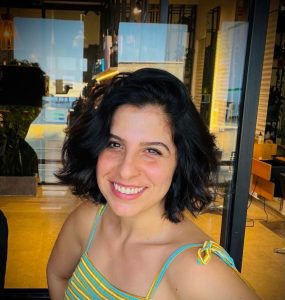
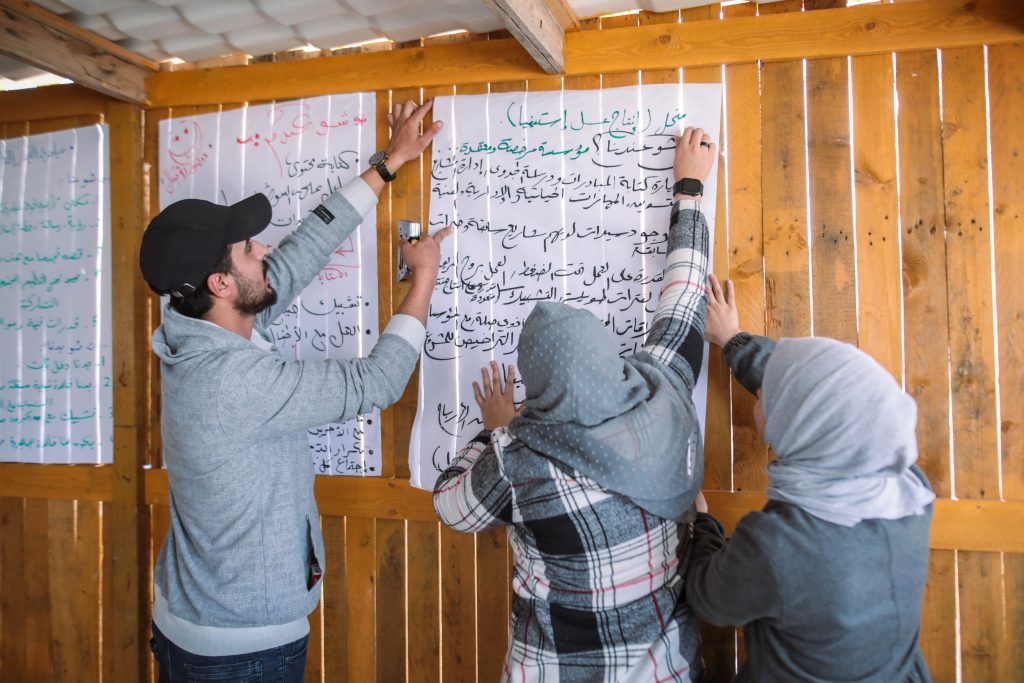
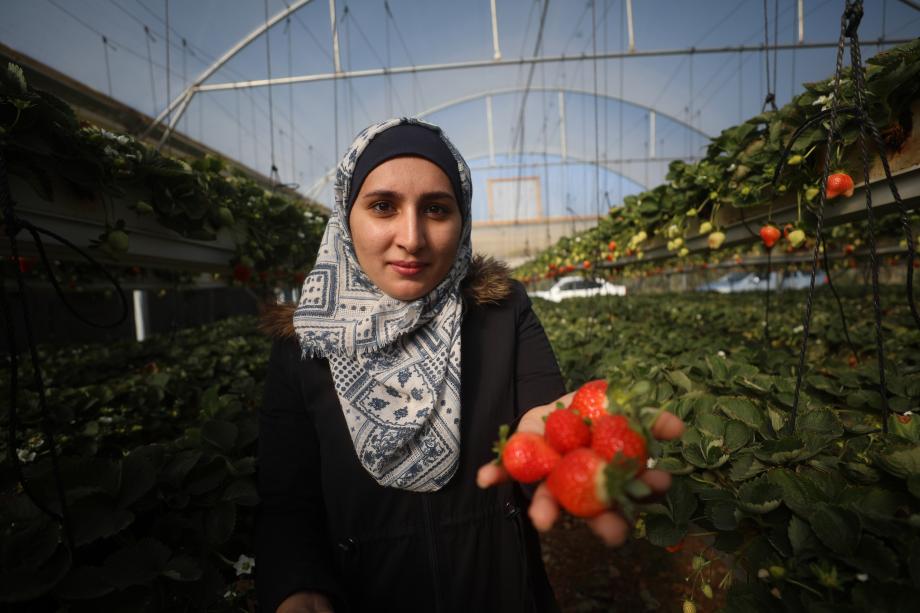
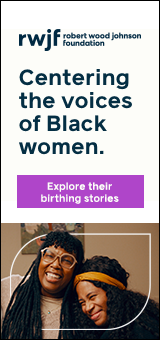
Comments (0)